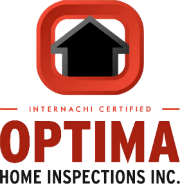Buying a home can be both an exciting and daunting process. One of the crucial steps in ensuring that your potential new home is safe, secure, and worth the investment is a home inspection. For homeowners in Poughkeepsie, understanding what a home inspection entails and why it’s essential is key to making an informed decision.
What is a Home Inspection?
A home inspection is a thorough examination of a property’s condition, often conducted before finalizing a real estate transaction. The goal is to uncover potential issues that could affect the home’s value or safety. The process typically involves skilled professionals who meticulously inspect various components of the home, such as the roof, foundation, plumbing, and electrical systems. They look for structural damages, code violations, and potential maintenance issues. This critical step helps buyers avoid unexpected, often costly problems post-purchase, ensuring their new home is not only livable but also a solid investment.
Many homeowners in Poughkeepsie are surprised to discover the extent of insight a home inspection provides. It’s not just about identifying the immediate fixes; it’s about understanding long-term maintenance needs and potential future concerns. For instance, if an inspection reveals wear and tear on a roof, a buyer can factor in the cost of repairs or replacements when negotiating the purchase price. This foresight prevents unexpected expenses, such as those arising from water leaks during the rainy season. Ultimately, a home inspection gives peace of mind, equipping the buyer with the knowledge needed for a confident purchase.
Key Components of a Home Inspection
During a home inspection, inspectors will assess various aspects of the property, including the foundation, roof, electrical systems, plumbing, and more. Understanding these components helps homeowners know what to expect during the process. The foundation, for instance, is scrutinized for any signs of shifting or cracking which could indicate past damage or potential for future issues. Similarly, roofs are inspected for their structural integrity and any potential leaks or missing components, such as shingles. Plumbing systems are evaluated for leaks, water pressure, and compliance with local codes, while electrical systems are checked for defects in wiring, inadequate grounding, and overloaded circuits.
Each component of a home inspection serves a particular purpose in evaluating a property’s overall health. The HVAC system, for example, is inspected to ensure it functions efficiently and safely, given that heating and cooling systems play a crucial role in maintaining comfort and energy efficiency in a Poughkeepsie home, especially considering the area’s variable climate. Likewise, inspectors often assess the condition of windows and doors, looking for signs of energy loss or foundational shifts that could lead to future issues. By understanding these components, buyers are better prepared to negotiate repairs or price adjustments, ensuring that the home they purchase is truly worth its price tag.
Why Home Inspections Matter in Poughkeepsie
Poughkeepsie presents unique challenges such as older homes and variable weather conditions that can affect the integrity of a property. A detailed inspection can uncover issues specific to the local area, ensuring buyers are fully informed. The city’s rich history means that many homes are decades, if not centuries, old. These properties can have outdated plumbing, wiring that doesn’t meet current safety standards, or hidden water damage from years of seasonal changes. Such issues are often invisible to the untrained eye, making an expert inspection indispensable. Moreover, Poughkeepsie’s distinct four-season climate, with its potentially harsh winters and humid summers, can strain home structures and systems, from the attic to the basement.
In addition to structural issues, inspections can reveal potential environmental concerns that are especially pertinent in older neighborhoods. For example, older homes might harbor lead paint or asbestos, posing health risks that modern buyers need to address promptly. Inspections can also assess the grounds for proper drainage, which is crucial in Poughkeepsie to prevent basement flooding and erosion, particularly during heavy spring rains. By identifying these risks ahead of time, new homeowners can plan accordingly—whether that means budgeting for repairs or negotiating the purchase price to reflect these needed improvements.
Choosing the Right Home Inspector
Selecting a qualified and experienced home inspector is crucial. Reputation, qualifications, and local knowledge are all important factors to consider when making your choice. Look for inspectors who are certified by recognized organizations, such as the American Society of Home Inspectors (ASHI), which ensures adherence to industry standards. Reading reviews and asking for recommendations from trusted real estate agents can also provide insights into an inspector’s reliability and thoroughness. Understanding local building codes and common issues in Poughkeepsie, like older infrastructure, also requires an inspector familiar with area-specific conditions.
It’s also beneficial to talk to prospective inspectors about their process and fees. A good inspector will welcome questions such as how long the inspection will take, what areas they cover, and what the final report includes. Prices can vary, so compare quotes while considering the value of thoroughness over cost. Remember, an inspector’s ability to communicate effectively is as crucial as their professional skills, as they must translate technical findings into actionable insights for you. Opt for an inspector who is willing and able to explain details clearly and is open to follow-up questions even after the inspection is completed.
Preparing for a Home Inspection
Being well-prepared for the inspection can save time and money. Homeowners should ensure easy access to all areas of the home, provide necessary documentation, and prepare a list of questions. Clear clutter away from spaces like attics, basements, and garages, and unlock gates or doors to any outbuildings or storage. This will allow the inspector to thoroughly examine all areas. Collect past inspection reports or maintenance records to provide a comprehensive background of the home. Armed with this information, an inspector can more accurately assess current conditions and determine whether there have been significant changes or recurring problems.
Creating a list of questions or areas of concern can further enhance the inspection process. If there are specific elements of the home that don’t appear to have been well maintained—like aging appliances or water stains in the basement—make sure these are addressed. Engaging directly with the inspector during the walkthrough enables you to gain firsthand insight into the conditions being reported. This proactive approach not only makes the inspector’s job more efficient but also ensures you fully benefit from the expertise they provide.
Understanding the Inspection Report
After the inspection, the inspector will provide a detailed report outlining their findings. Learning how to read and interpret this report is crucial for making informed decisions about any needed repairs or negotiations. A clear report will highlight both major and minor issues, sometimes prioritizing them by urgency. Pay close attention to immediate safety concerns, such as faulty wiring or structural defects, that will likely require prompt attention. Conversely, less urgent matters, like worn carpeting or minor faucet leaks, might be deferred until after you’ve settled into your new home.
Equipped with a comprehensive report, next steps usually include discussing findings with your real estate agent or directly with the seller. A well-documented report provides powerful leverage for negotiating repairs or price reductions. Understandably, not every finding demands rectification, especially if it pertains to typical wear and tear expected in a house of a certain age. Establish clear priorities based on the severity and cost of repairs and decide whether you wish to pursue concessions from the seller or handle them personally. This strategic approach empowers you to move forward in your home-buying journey with confidence and clarity.
Wrapping Up: Your Path to a Successful Home Purchase
Navigating the home inspection process may seem overwhelming at first, but understanding its importance and what to expect can make it much more manageable. By choosing a reputable inspector and being prepared for the inspection process, Poughkeepsie homeowners can confidently move forward in their home-buying journey, knowing they have all the information necessary to make a sound investment. To start this journey with confidence, explore the services offered by Optima Home Inspections for a comprehensive assessment of your next potential home.


